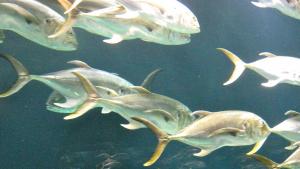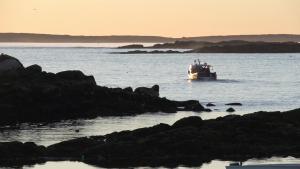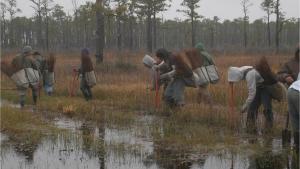Marine Ecosystems
Climate change is altering U.S. marine ecosystems in unprecedented ways, leading to shifts in species’ location, productivity, and seasonal timing. This poses risks to fisheries, tourism, recreation, transportation, energy, and other economic sectors—and also undermines critical connections between people and the ocean, especially within Indigenous communities.
- Unprecedented climate impacts threaten ecosystems and human well-being.
- Climate change is altering marine-related economic activities.
- Our future ocean depends on decisions today.
Adapted from the Ocean Ecosystems and Marine Resources chapter of the Fifth National Climate Assessment.
Looking for previous narratives?
Featured resources

Kevin Lawver. CC BY-SA 2.0, http://creativecommons.org/licenses/by-sa/2.0, via Wikimedia Commons

Screen capture from video "Confronting Changing Climate Conditions: A Lobster Community Adapts through Participatory Planning." Video footage: Jeff Dobbs, Jeff Dobbs Productions. Used with permission
Related Case Studies & Action Plans

Photo attributed to U.S. Fish and Wildlife Service Headquarters. Incorporated here under the Creative Commons Attribution 2.0 Generic license. No endorsement by licensor implied.







